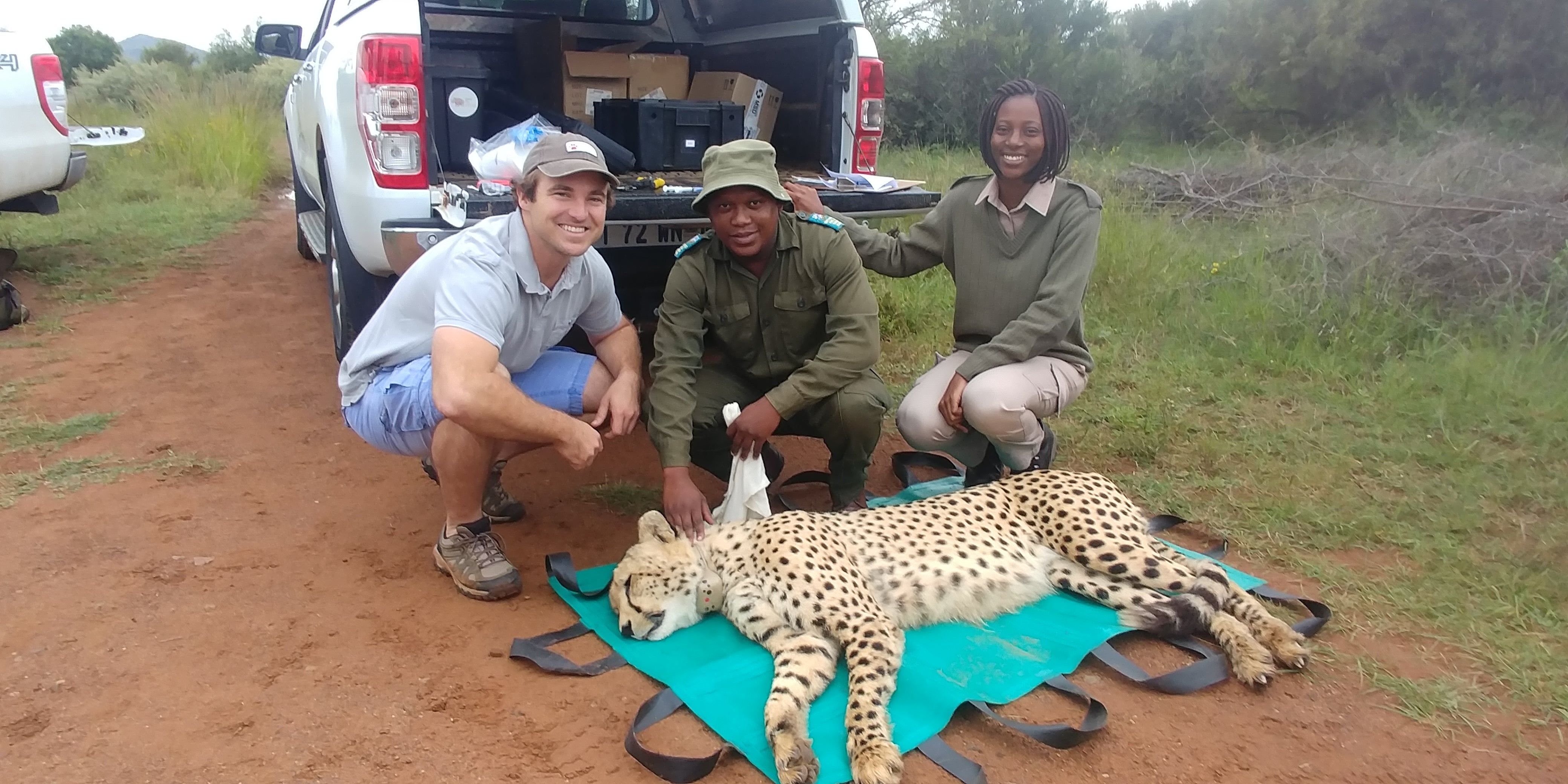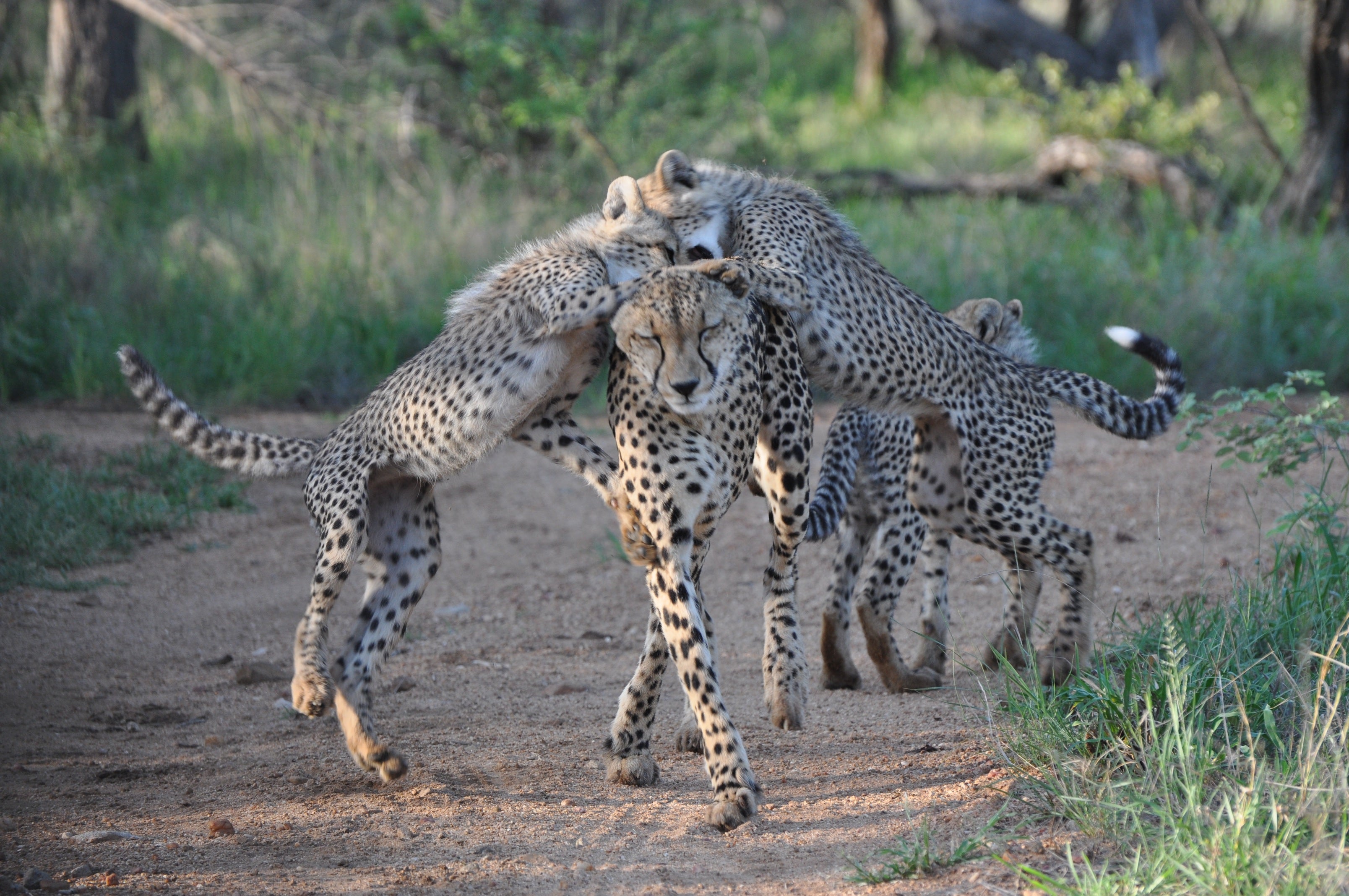Sex kittens: The cheetah matchmaker helping big cats find love and survive shrinking gene pool
A South African biologist is pairing up cheetahs to combat inbreeding which threatens their species

Your support helps us to tell the story
From reproductive rights to climate change to Big Tech, The Independent is on the ground when the story is developing. Whether it's investigating the financials of Elon Musk's pro-Trump PAC or producing our latest documentary, 'The A Word', which shines a light on the American women fighting for reproductive rights, we know how important it is to parse out the facts from the messaging.
At such a critical moment in US history, we need reporters on the ground. Your donation allows us to keep sending journalists to speak to both sides of the story.
The Independent is trusted by Americans across the entire political spectrum. And unlike many other quality news outlets, we choose not to lock Americans out of our reporting and analysis with paywalls. We believe quality journalism should be available to everyone, paid for by those who can afford it.
Your support makes all the difference.The dating scene can be slim pickings when you live in the remote countryside. And for cheetahs, that’s a problem that could threaten the very existence of the species.
Step forward South African biologist Vincent van der Merwe, who has a unique job. The 39-year-old introduces the big cats to each other so they can couple up and mate
Vincent, who lives in Cape Town, moves cheetahs between reserves in South Africa, Malawi, Mozambique, and Zambia to help them find mates and diversify their gene pool – a vital act given that inbreeding is a factor in the animals’ dwindling numbers.
Inbreeding in any animal can increase susceptibility to illness. Inbred cheetahs often suffer mange and other diseases, which in normal circumstances the cats would shrug off easily. Other health problems can include smaller body size, heart defects, slower growth rate and reduced fertility.
Vincent, who works for conservation group the Endangered Wildlife Trust, tells The Independent: “I move cheetah populations between reserves to ensure genetic health and ecological balance.
“Wild cheetahs are quite promiscuous – so much so that genetic testing has found that there can be multiple fathers in the same litter. Once you introduce a cheetah into a new reserve, no initiations are necessary; they will find each other without interference and breed.”
A typical reserve that Vincent and his team visit is the size of the greater London area, and contains just 10 cheetahs. Fortunately, cheetahs have something called communication hubs, normally prominent trees or rocks, where they meet.
Males will mark these sites weekly by urinating or defecating. In doing so, they announce their presence in an area, who will visit the hubs when they are scouting for potential mates.
“No encouragement is required,” Vincent says. “Like humans, cheetahs are evolutionarily programmed to procreate. My job is simply to ensure that, within all 67 reserves/protected areas that I work with, there is at least one adult male and one adult female.”
He adds: “My work gives me a purpose in life. It’s a tonne of work, and I’m hardly ever home, but I feel as if I’m making a positive contribution to biodiversity and society.
“It helps me sleep well at night. I grew up with a deep love for Africa. A major bonus of my work is that I get to see some incredible places, the last few remaining wild places in Africa.”
Despite their famous speed, cheetahs are something of an underdog in the wild and are actively hunted by lions, leopards, and hyenas. Half of cheetah deaths are caused by these three predators.
“Sometimes we have cases where all three adult females in a protected area are randomly killed in a series of unfortunate events,” Vincent says.
“In a scenario like this, I will identify a protected area where cheetahs are doing well, and I will capture new adult females from that area and relocate them to reserves where we have lost key breeding individuals.”

Vincent manages what the Endangered Wildlife Trust says is the only growing wild cheetah population in the world. The organisation started its project 10 years ago with a declining population of 217 wild cheetahs in 41 protected areas. They now have 486 cheetahs in 67 protected areas.
Vincent’s favourite cheetah matchmaking involved a small cheetah named Bob.
He says: “When we got approval for wild cheetah reintroduction into a beautiful reserve called Majete in Malawi, I sourced two beautiful females and two large, dominant males.
“Just before we were about to fly the cheetahs to Majete, I got offered a third male cheetah that had mistakenly been identified as a female, because he was so small. We called him Bob.
“Shortly after arrival in Malawi, the two dominant males got killed, one by a warthog, and the other by a leopard. Puny Bob turned out to be a true survivor and impregnated both of the females.
“He is still alive today, roaming the wilds of Majete, being a good boyfriend to all the cheetah mums.”
Donations to the Endangered Wildlife Trust’s campaign to “help a cheetah get laid” can be made through donation platform Milkywire.
Join our commenting forum
Join thought-provoking conversations, follow other Independent readers and see their replies
Comments